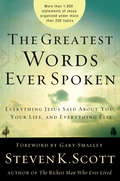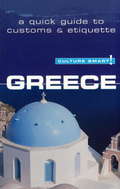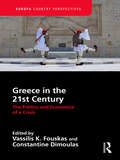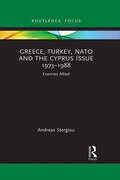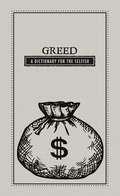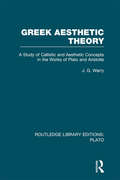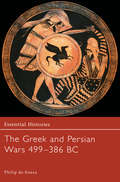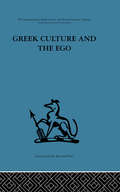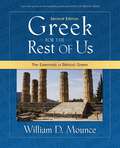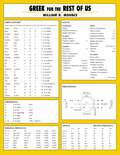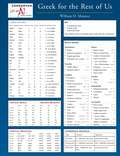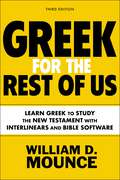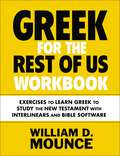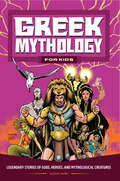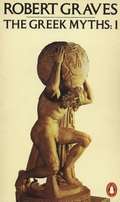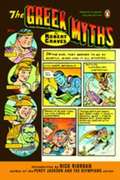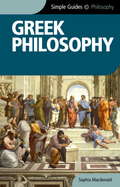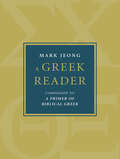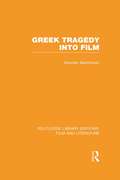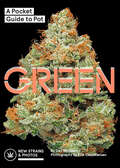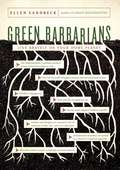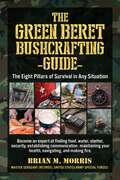- Table View
- List View
The Greatest Words Ever Spoken: Everything Jesus Said About You, Your Life, and Everything Else
by Steven K. ScottEvery Word of Jesus Right at Your FingertipsHaven’t you wished you could ask Jesus any question and get his immediate help with the biggest problems you face? Now you can. For the first time ever, all of the statements Jesus made in the New Testament have been brought together and organized under more than 200 topics. When you want to know his will in a specific area of life, or you’re seeking the answer to a perplexing question, or you are desperate for his encouragement, comfort, or wisdom–you can easily find the help you need. The moment you turn to the appropriate topic heading, you will have access to the breadth of Jesus’ teaching on that subject. You can also use this book as a guide for studying Jesus’ wisdom on any topic of interest, such as prayer, forgiveness, eternity, anger, temptation, relationships, grace, or knowing God. As you immerse yourself in Jesus’ words, your life and relationships will be transformed, and your faith and spiritual passion will be renewed. Let the greatest words ever spoken bring new vision, power, and joy into your life–one statement at a time.
The Greatest Words Ever Spoken
by Steven K. ScottScott collects in one volume all the sayings of Jesus addressing nine crucial areas of life--the sayings, teachings, and promises of Jesus on 222 topics.
Greece - Culture Smart!
by Constantine BuhayerCulture Smart! provides essential information on attitudes, beliefs and behavior in different countries, ensuring that you arrive at your destination aware of basic manners, common courtesies, and sensitive issues. These concise guides tell you what to expect, how to behave, and how to establish a rapport with your hosts. This inside knowledge will enable you to steer clear of embarrassing gaffes and mistakes, feel confident in unfamiliar situations, and develop trust, friendships, and successful business relationships.Culture Smart! offers illuminating insights into the culture and society of a particular country. It will help you to turn your visit-whether on business or for pleasure-into a memorable and enriching experience. Contents include* customs, values, and traditions* historical, religious, and political background* life at home* leisure, social, and cultural life* eating and drinking* do's, don'ts, and taboos* business practices* communication, spoken and unspoken"Culture Smart has come to the rescue of hapless travellers." Sunday Times Travel"... the perfect introduction to the weird, wonderful and downright odd quirks and customs of various countries." Global Travel"...full of fascinating-as well as common-sense-tips to help you avoid embarrassing faux pas." Observer"...as useful as they are entertaining." Easyjet Magazine"...offer glimpses into the psyche of a faraway world." New York Times
Greece in the 21st Century: The Politics and Economics of a Crisis (Europa Country Perspectives)
by Vassilis K. Fouskas Constantine DimoulasFor most of the first part of the 21st century Greece has been seen as a critical battlefield for the survival of the powerful and the adjustment or extinction of the weak, as if all the historical contradictions of the global financial crisis and the eurozone crisis were concentrated in that tiny part of the world, with a population of just 11 million people and a GDP of less than 2% of that of the European Union as a whole. While the country has been overpowered by the disciplinarian and deeply authoritarian policy mix of ordoliberal/neoliberal rules, as this book attempts to show, there is hope. Defeat does not end the crisis, and crisis means constant opportunity. In this state of affairs, all types of agencies try to take advantage of the conditions and opportunities in order to advance towards positions of power and provide the best of solutions for the class interests they represent. Thus, harsh conflict is inevitable and if history provides a yardstick, it is that in periods of conflict and crisis, the winner, usually, is the one who manages to strike the right political and social alliances at the right time. The editors have assembled in this volume a number of interdisciplinary chapters and arguments which, despite their differences, share the strategic aim of a critique of both neoliberalism/ordoliberalism and new authoritarianism. Chapters examine the eurozone crisis from a variety of angles with reference to Greece, and Greek politics and society. With this collection of heterodox and scholarly essays, the authors and editors aim to offer a progressive understanding of current historical circumstances. Constantine Dimoulas is an Assistant Professor in social administration and evaluation of social programmes at Panteion University, Greece. Vassilis K. Fouskas is Professor of international politics and economics at the University of East London, UK, and the founding editor of the Journal of Balkan and Near Eastern Studies (Taylor & Francis).
Greece, Turkey, NATO and the Cyprus Issue 1973–1988: Enemies Allied (Europa Regional Perspectives)
by Andreas StergiouThe volume examines one of the most sensitive issues in the contemporary diplomatic history of the eastern Mediterranean, namely, the nexus between Greece, Turkey, the Cyprus problem and NATO in the crucial period between 1973 and 1988. Beginning with the emergence of the Aegean dispute in 1973 and ending with the most comprehensive attempt to date to solve the Greek–Turkish conflict in the wake of the Davos rapprochement process in 1988. The analysis in this book goes back to developments that occurred in the first half of the 20th century.
Greed: A Dictionary for the Selfish
by Media AdamsThe Seven Deadly Sins have sliced up the dictionary and taken what's theirs. No one vice is too greedy as each volume prides itself on having more than 500 entries. Word lovers will lust after these richly packaged volumes--and once you've collected all seven, you'll be the envy of all your friends.Greed: A Dictionary for the SelfishSurprisingly, it didn't claim every word in the OED (although if it could, it would). This pocket-sized dictionary swipes only the most worthy of syllables, as well as the reader's attention.
Greed: A Dictionary for the Selfish
by Adams MediaThe Seven Deadly Sins have sliced up the dictionary and taken what's theirs. No one vice is too greedy as each volume prides itself on having more than 500 entries. Word lovers will lust after these richly packaged volumes--and once you've collected all seven, you'll be the envy of all your friends.Greed: A Dictionary for the SelfishSurprisingly, it didn't claim every word in the OED (although if it could, it would). This pocket-sized dictionary swipes only the most worthy of syllables, as well as the reader's attention.
Greek Aesthetic Theory (Routledge Library Editions: Plato)
by J G WarryThis book provides a clear and informed account of aesthetic and callistic concepts as they occur in the works of Plato and Aristotle. The author illustrates their ideas on art and beauty by close reference to their texts and finds a profound similarity which unites them, revealing many of their differences to be complementary aspects of an essentially similar viewpoint. He also shows how Greek notions of art and beauty are not merely primitive steps in the advance to modern ideas but have a direct relevance to modern critical controversies.
The Greek and Persian Wars 499-386 BC (Essential Histories #36)
by Philip de SouzaFirst published in 2004. Routledge is an imprint of Taylor & Francis, an informa company.
Greek Culture and the Ego: A psycho-analytic survey of an aspect of Greek civilization and of art
by Adrian StokesTavistock Press was established as a co-operative venture between the Tavistock Institute and Routledge & Kegan Paul (RKP) in the 1950s to produce a series of major contributions across the social sciences. This volume is part of a 2001 reissue of a selection of those important works which have since gone out of print, or are difficult to locate. Published by Routledge, 112 volumes in total are being brought together under the name The International Behavioural and Social Sciences Library: Classics from the Tavistock Press. Reproduced here in facsimile, this volume was originally published in 1958 and is available individually. The collection is also available in a number of themed mini-sets of between 5 and 13 volumes, or as a complete collection.
Greek for the Rest of Us: The Essentials of Biblical Greek
by William D. MounceIf you’d love to learn Greek so you can study your Bible better, then this newly revised second edition of Greek for the Rest of Us is foryou. Developed by renowned Greek teacher William Mounce, this revolutionarycrash-course on “Greek for the rest of us” will acquaint you with the essentials of the language and deepen your understanding of God’s Word. You’ll gain a sound knowledge of Greek, and you’ll learn how to use tools that will add muscle to your Bible studies. This book is divided into three major sections (Foundational Greek, Church Greek, and Functional Greek), each of which builds on the previous section and takes you to the next level. Depending on which levels you take, the book will teach you how to: Read and pronounce Greek words Learn the fundamentals of the Greek noun and verb system Conduct effective Greek word studies Learn the basics of Greek exegesis for biblical interpretation Decipher why translations are different Read better commentaries Be comfortable using reverse and traditional interlinears Understand the information displayed by biblical software
Greek for the Rest of Us Laminated Sheet: Learn Greek to Study the New Testament
by William D. MounceThe Greek for the Rest of Us Laminated Sheet is a handy, at-a-glance study aid, ideal for last minute review, a quick overview of grammar, or as an aid in Bible study. The laminated sheet is a companion resource for Greek for the Rest of Us, Third Edition (sold separately) by William Mounce and is a critical part of acquainting readers with the essentials of the language and deepening their understanding of God's Word.When used in conjunction with Greek for the Rest of Us, Third Edition this laminated study sheet will help readers:Read and pronounce Greek wordsLearn the fundamentals of the Greek noun and verb systemConduct effective Greek word studiesLearn the basics of Greek exegesis for biblical interpretationUnderstand why translations are differentRead better commentariesBe comfortable using reverse and traditional interlinearsUnderstand the information displayed by biblical software
Greek for the Rest of Us Laminated Sheet: The Essentials Of Biblical Greek
by William D. MounceMany people want to learn Greek in order to better understand the Bible, but very few are able to spend the numerous years required to master Biblical Greek, even those who have a seminary education.The get-an-A laminated sheet for Greek for the Rest of Us by William Mounce is a critical part of acquainting students with the essentials of the language and deepening their understanding of God’s Word.Developed by renowned Greek teacher William Mounce, this Greek for the Rest of Us Laminated Sheet will help students: recite the Greek alphabet; read and pronounce Greek words; learn the Greek noun and verbal system; conduct Greek word studies; decipher why translations are different; see the author’s flow of thought and central message; and read better commentaries.
Greek for the Rest of Us, Third Edition: Learn Greek to Study the New Testament with Interlinears and Bible Software
by William D. MounceLearn the Essentials of Biblical Greek So You Can Study the New Testament More DeeplyThis newly revised third edition of Greek for the Rest of Us by Greek instructor William Mounce is crash-course on "Greek for the rest of us" that acquaints the reader with the essentials of the language so they can study the New Testament more deeply. Readers will gain a sound knowledge of the fundamentals of Greek and learn how to use tools that will add muscle to their Bible studies.In Greek for the Rest of Us readers will learn to:Read and pronounce Greek wordsLearn the fundamentals of the Greek noun and verb systemConduct effective Greek word studiesLearn the basics of Greek exegesis for biblical interpretationUnderstand why translations are differentRead better commentariesBe comfortable using reverse and traditional interlinearsUnderstand the information displayed by biblical softwareFor anyone interested in seriously studying the New Testament, Greek for the Rest of Us is your gateway to learning the skills and tools you need to accomplish your goals. You can enhance your learning experience even more with the Greek for the Rest Us Workbook (sold separately) which contains exercises to help practice and reinforce the concepts you are learning in the main book.
Greek for the Rest of Us Workbook: Exercises to Learn Greek to Study the New Testament with Interlinears and Bible Software
by William D. MounceA WORKBOOK to Help You Learn the Essentials of Biblical Greek So You Can Study the New Testament More DeeplyThe Greek for the Rest of Us Workbook is a companion to Greek for the Rest of Us, Third Edition (sold separately) by William D. Mounce. This workbook provides exercises to help readers practice and review, so they learn the essentials of biblical Greek more effectively and can study the New Testament more deeply.Greek for the Rest of Us, Third Edition is crash-course on "Greek for the rest of us" that acquaints the reader with the essentials of the language so they can study the New Testament more deeply. Readers will gain a sound knowledge of the fundamentals of Greek and learn how to use tools that will add muscle to their Bible studies.Readers using the Greek for the Rest of Us Workbook in conjunction with Greek for the Rest of Us, Third Edition will learn to:Read and pronounce Greek wordsLearn the fundamentals of the Greek noun and verb systemConduct effective Greek word studiesLearn the basics of Greek exegesis for biblical interpretationUnderstand why translations are different Read better commentariesBe comfortable using reverse and traditional interlinearsUnderstand the information displayed by biblical softwareThe Greek for the Rest Us Workbook will enhance your learning experience with exercises to help you practice and reinforce the concepts you are learning in Greek for the Rest of Us, Third Edition.
Greek Mythology for Kids: Legendary Stories of Gods, Heroes, and Mythological Creatures
by Zachary HambyExperience adventure and enchantment with Greek mythology for kids 8 to 12 Greek gods and goddesses continue to capture our imaginations with tales of epic battles and star-crossed love. Whether you're fighting alongside Zeus in the war against the Titans or witnessing the sabotage of Artemis's love for the mortal Orion, this book will thrill you with extraordinary stories from Greek legend. Classic characters—Dive into 20 exciting, kid-friendly tales featuring the antics of favorite characters like Aphrodite, the goddess of love, Hermes, messenger of the gods, and Persephone, queen of the underworld. Dramatic illustrations—Watch the awe-inspiring world of Greek mythology come to life with the bold art in the style of a graphic novel for kids. A guide to the Greeks—Learn who did what and where with a handy guide to characters and locations that makes exploring Greek mythology fun and easy. Venture into Greek Mythology for Kids!
The Greek Myths
by Robert GravesCombines in a single volume the complete text of the definitive two-volume classic, citing all the ancient myths.
The Greek Myths
by Robert GravesThe Greek Myths is the definitive and comprehensive edition of Robert Graves's classic imaginative and poetic retelling of the Greek myths. 'Icarus disobeyed his father's instructions and began soaring towards the sun, rejoiced by the lift of his great sweeping wings. Presently, when Daedalus looked over his shoulder, he could no longer see Icarus; but scattered feathers floated on the waves below. . . 'Including many of the greatest stories ever told - the labours of Hercules, the voyage of the Argonauts, Theseus and the minotaur, Midas and his golden touch, the Trojan War and Odysseus's journey home - Robert Graves's superb and comprehensive retelling of the Greek myths for a modern audience has been regarded for over fifty years as the definitive version. With a novelist's skill and a poet's eye, Graves draws on the entire canon of ancient literature, bringing together all the elements of every myth into one epic and unforgettable story. Ideal for the first time reader, it can be read as a single, continuous narrative, while full commentaries, with cross-references, interpretations, variants and explanations, as well as a comprehensive index of names, make it equally valuable as a work of scholarly reference for anyone seeking an authoritative and detailed account of the gods, heroes and extraordinary events that provide the bedrock of Western literature. The result is a classic among classics, a treasure trove of extraordinary tales and a masterful work of literature in its own right. 'Among the most generous, self-willed, unseemly and brilliant writers of our century' New York Times Robert Graves (1895 - 1985) was a novelist, poet, historian, critic and translator, author of some 140 books, and one of the greatest figures of 20th century British literature. Alongside The Greek Myths, his most famous works include the historical novels I, Claudius and Claudius the God and his First World War memoir Goodbye to All That. His friendship with fellow war poet Siegfried Sassoon was the subject of Pat Barker's novel Regeneration.
The Greek Myths
by Ross Macdonald Robert Graves Rick RiordanRobert Graves, classicist, poet, and unorthodox critic, retells the Greek legends of gods and heroes for a modern audience And, in the two volumes of The Greek Myths, he demonstrates with a dazzling display of relevant knowledge that Greek Mythology is "no more mysterious in content than are modern election cartoons." His work covers, in nearly two hundred sections, the creation myths; the legends of the births and lives of the great Olympians; the Theseus, Oedipus, and Heracles cycles; the Argonaut voyage; the tale of Troy, and much more. All the scattered elements of each myth have been assembled into a harmonious narrative, and many variants are recorded which may help to determine its ritual or historical meaning, Full references to the classical sources, and copious indexes, make the book as valuable to the scholar as to the general reader; and a full commentary on each myth explains and interprets the classical version in the light of today's archaeological and anthropological knowledge.
Greek Philosophy - Simple Guides
by Sophia MacdonaldTHIS BOOK WILL HELP YOU* to appreciate the revolution in thinking brought about by the Ancient Greek philosophers, who sought to make sense of the world through analysis, reasoning and argument* to recognize the key ideas of the most significant philosophers and their contribution to Western thought* to learn about the philosophers' lives, and their impact on society* to appreciate the value of questioning received wisdom and submitting it to rigorous analysisTo live in the modern world is to owe a debt of gratitude to the Ancient Greeks. Ancient Greece was one of the wellsprings of European civilization, and the Greeks were both the pioneers of rigorous analytical thought and the creators of prose and poetry that speak to us over the centuries.Materialism and idealism form the two major strands of Greek philosophy: thinking about the universe, nature and matter; and thinking about humanity, politics, justice, good and evil, and our relationship with the divine. The Greeks were the first to distinguish between myth and philosophy, and to develop a scientific method of enquiry. In ancient Greece 'natural philosophers' studied mathematics, physics, logic, cosmology, medicine, Politics, ethics and aesthetics. Democracy, atoms, copycat killings -- the Greeks had opinions on these and many more, and their conclusions have often proved prescient. Cynicism and Stoicism are Greek philosophical schools whose names have passed into common parlance.This lucid introduction to Greek philosophy links important ideas to key personalities and places. It shows the development and movement of people and ideas around the Mediterranean world, from the time of the earliest pre Socratic philosophers, through Pythagoras, Heraclitus, and the Sophists to Socrates, Plato, Aristotle, the Cynics and the Stoics. Written in a clear and engaging style, it is a fascinating account of the major source of Western culture and today's knowledge-based society.ACCESS THE WORLD'S PHILOSOPHIESSimple Guides: Philosophy is a series of concise introductions to the major philosophies of the world. Written by experts in the field, these accessible guides offer a fascinating account of the rich variety of arguments ideas and systems of thought articulated by different cultures in the attempt to explore and define the nature of reality, and the meaning, purpose and proper conduct of life.The Simple Guides will appeal to analytical thinkers and spiritual seekers alike. Taken together, they provide a basic introduction to the evolution of human thought, and a point of reference for further exploration and discovery. By offering essential insights into the world views of different societies, they also enable travellers to behave in a way that fosters mutual respect and understanding.
A Greek Reader: Companion to A Primer of Biblical Greek (Eerdmans Language Resources)
by Mark JeongA companion resource for use with N. Clayton Croy&’s Primer of Biblical Greek, featuring dozens of simple, enjoyable narratives to reinforce the content and skills introduced by Croy. Too often, Greek readers include difficult primary texts encumbered with glosses, but this reader from Mark Jeong is instead comprised of originally written texts keyed to the vocabulary and grammar taught in Clayton Croy&’s Primer of Biblical Greek. Thus fluent, comprehensive reading—rather than painstaking translation—can be the goal. In addition to providing useful practice, Jeong&’s engaging narratives will help students of Greek grasp the nuances of particularly complicated aspects of Koine—such as the imperfect tense—by allowing them to see the language &“in action&” in various textual situations. Each narrative also follows a larger story about the adventures of Philemon, Onesimus, and Paul, making for enjoyable reading that better prepares one for the daunting task of eventually reading the Greek New Testament.
Greek Tragedy into Film (Routledge Library Editions: Film and Literature)
by Kenneth MacKinnonIf Greek tragedy is sometimes regarded as a form long dead and buried, both theatre producers and film directors seem slow to accept its interment. Originally published in 1986, this book reflects the renewed interest in questions of staging the Greek plays, to give a comprehensive account and critical analysis of all the important versions of Greek tragedy made on film. From the 1927 footage of the re-enactment of Aeschylus’ Prometheus in Chains at the Delphi Festival organised by Angelos Sikelianos to Pasolini’s Notes for an African Oresteia, the study encompasses the version of Oedipus by Tyrone Guthrie, Tzavellas’s Antigone (with Irene Papas), Michael Cacoyannis’s series which included Electra, The Trojan Women, and Iphigeneia, Pasolini’s Oedipus and Medea (with Maria Callas), Miklos Jancso’s Elektreia, Dassim’s Phaedra and others. Many interesting questions are raised by the transference of a highly stylised form such as Greek tragedy to what is often claimed to be the ‘realistic’ medium of film. What becomes clear is that the heroic myths retain with ease the power to move the audiences in very different milieux through often strikingly different means. The book may be read as an adjunct to viewing of the films, but enough synopsis is given to make its arguments accessible to those familiar only with the classical texts, or with neither version.
Green: A Pocket Guide to Pot
by Erik Christiansen Dan MichaelsAddressing a generation of pot smokers living at a time when over half of America has legalized medical marijuana, this quick reference edition of the successful Green delivers the planet's best bud photography. Organized alphabetically, each of the 150 strains features a gorgeous bud shot plus a breezy description of the bud and its essential stats (lineage, flavor, high, and medicinal uses). Updated with more popular strains as well as new live plant and microscopic bud photography, this edition of Green will be the go-to strain guide for recreational and medicinal users alike.
Green Barbarians
by Ellen SandbeckTHESE DAYS, WE WORRY ABOUT EVERYTHING: pandemic flu, global warming, contaminated toys, the purity of our foods and other products. The abundance of contradictory information out there can make you crazy. InGreen Barbarians, Ellen Sandbeck delivers necessary knowledge and sounds a clarion call to arms, urging us to step forward and make informed decisions in order to live happier, safer, and more environmentally responsible lives.
The Green Beret Bushcrafting Guide: The Eight Pillars of Survival in Any Situation
by Brian MorrisBecome an expert at finding food, water, shelter, security, establishing communication, maintaining your health, navigating, and making fire. Many survival and emergency preparedness experts today use the pyramid approach to survival prioritization, putting food, water, shelter, and security in the largest block at the base of the pyramid and then community, sustainability, and higher needs in smaller brackets at the top of the pyramid. Decorated combat veteran Brian M. Morris takes a different and linear approach to survival using an eight-pillar system, developed over decades of serving as a Green Beret in the US Army Special Forces. The foundation for Morris's methodology is KISS, which stands for &“keep it simple, stupid,&” an acronym widely used by the military to remind soldiers that the best solutions are often the simplest. In his eight-pillar system, it is up to the survivor to assess their situation and then choose the pillar that is needed most to survive the situation at hand. Much like a rifle pop-up target range where a shooter is expected to hit the closer (more dangerous) 50-meter target first before engaging the 300-meter target, the survivor needs to choose the pillar that is most urgent and necessary to save their life under the circumstances.
